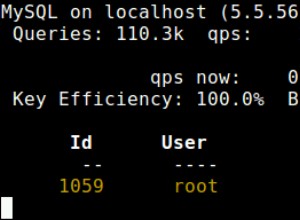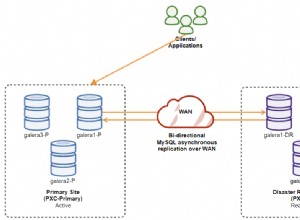Ich glaube nicht, dass es mit SailsJS 0.10.5 vorerst möglich ist. Eigentlich würde ich gerne das Gleiche tun, also habe ich beschlossen, zu diesem Zweck einen schnellen Hack zu implementieren.
Öffnen Sie die Datei sails/lib/hooks/blueprints/actionUtil.js , bearbeiten Sie die Methode populateEach wie unten:
populateEach: function ( query, req ) {
var DEFAULT_POPULATE_LIMIT = sails.config.blueprints.defaultLimit || 30;
var _options = req.options;
var aliasFilter = req.param('populate');
var shouldPopulate = _options.populate;
// Convert the string representation of the filter list to an Array. We
// need this to provide flexibility in the request param. This way both
// list string representations are supported:
// /model?populate=alias1,alias2,alias3
// /model?populate=[alias1,alias2,alias3]
if (typeof aliasFilter === 'string') {
aliasFilter = aliasFilter.replace(/\[|\]/g, '');
aliasFilter = (aliasFilter) ? aliasFilter.split(',') : [];
}
return _(_options.associations).reduce(function populateEachAssociation (query, association) {
// If an alias filter was provided, override the blueprint config.
if (aliasFilter) {
shouldPopulate = _.contains(aliasFilter, association.alias);
}
// Only populate associations if a population filter has been supplied
// with the request or if `populate` is set within the blueprint config.
// Population filters will override any value stored in the config.
//
// Additionally, allow an object to be specified, where the key is the
// name of the association attribute, and value is true/false
// (true to populate, false to not)
if (shouldPopulate) {
// IMPORTANT NOTE: This is my trick. We should take advanced options from request parameter to make requests even more flexible
var populationOptions = req.param('populate_' + association.alias);
if (!populationOptions) {
var populationLimit = _options['populate_' + association.alias+'_limit'] ||
_options.populate_limit ||
_options.limit ||
DEFAULT_POPULATE_LIMIT;
populationOptions = {limit: populationLimit};
}
return query.populate(association.alias, populationOptions);
}
else {
return query;
}
}, query);
},
Yay! Jetzt kann Ihre API zusätzliche Zuordnungsfilter wie unten verarbeiten:
# POST /api/documents
{
"where" : {
// Normal conditions
}
"populate_user": {
// Advanced condition for association 'admin'
"where" : {
"role" : {
"like": "%Admin%"
}
},
"limit" : 4
}
}
Ich hoffe, dass es hilft. Übrigens werde ich morgen Zeit finden, eine Pull-Anfrage dieser Verbesserung an den SailsJS-Kern zu senden.
P/S:Der Kern von SailsJS ist ziemlich gut gemacht. Wahrscheinlich sind Core-Committer einfach zu beschäftigt, um alle Feature-Requests zu bearbeiten. Machen wir mit!




